Pets and Essential Oils: Q&A Interview with Dr. Emily Hoppmann, DVM
Pets and Essential Oils: An Interview With a Doctor of Veterinary Medicine
Since the beginning, Organic Aromas has promoted the safe, appropriate, and effective use of essential oils as the primary focus of its’ business. The mission and philosophy of putting health and wellness above all else is extremely important. Since even before the pandemic, Organic Aromas has been dedicated and committed to educating people about how they can safely use essential oils to better their lives in a variety of ways.
Over the years, Organic Aromas has observed a rapid rise in the overall use of essential oils worldwide and has documented a substantial and prolonged increase in both the variety of applications of essential oils and the number of people using them.
This is a remarkable trend and is not likely to slow down anytime soon. In fact, it is only going to continue growing in this direction. Moreover, with this development people have also turned to using essential oils in, on, around and even for their furry and feathered friends too!
That is right, the concept of utilizing essentials oils in a wide variety of ways to treat, soothe, calm, or elicit specific reactions from animals has been taking off in recent years! Throughout our history, Organic Aromas has documented an enormous amount of people asking for information, advice and knowledge regarding essentials oils and their pets. Clearly, how to use them safely and effectively is of utmost importance.
In this article we chat with a highly qualified and experienced Doctor of Veterinary Medicine, Dr. Emily Hoppmann. She has been working for years on the health and well-being of animals of all kinds, but especially exotic pets, to raise awareness and increase education about the safe and effective practice of a variety of alternative treatments for animals. Dr. Emily Hoppmann has been using essential oils both personally and in her care of animals for years, so she is “extremely happy to have partnered with Organic Aromas to help raise awareness”.
We hope you will find this interview both helpful and valuable. Please read on…
You’re a Doctor of Veterinary Medicine but you spent a year at the Stahl Exotic Animal Veterinary Services (SEAVS). What did you do there and what was it like?
I had already tracked exotic animals while at the University of Georgia School of Veterinary Medicine (UGA SVM) and been lucky enough to have amazing mentors that helped me obtain a very extensive and well-rounded foundation in both small animal medicine and surgery, but especially in exotic animal medicine and surgery. I was able to start practicing immediately out of veterinary school with a practice where I had a very high case-load of exotic animals of all types and was able to feel very comfortable due to having such a unique education. Subsequently, I continued to pursue both my own education in exotic animals and my pursuit to educate owners about their pets through countless publications in medical journals, magazines, newspapers, and veterinary specific publications. After a few years of practicing veterinary medicine in private practice with small animals and exotics, I wanted to learn even more and Dr. Stahl offered me the opportunity to do an internship focused only on exotic animal medicine and surgery. SEAVS allowed me to continue practicing veterinary medicine as the veterinarian I was, but was also similar to being at the University of Georgia College of Veterinary Medicine where I was surrounded by the toughest cases and an endless supply of more advanced knowledge with the mentors there. Every single patient was an exotic and I treated them as I had been doing in private practice. However, I was surrounded by people much more experienced and trained that I could go over all my cases with them. I also had early morning rounds and evening rounds focusing on very specific exotic medical and surgical diseases, etc. I was able to learn so much every second I was there and can’t thank them enough.
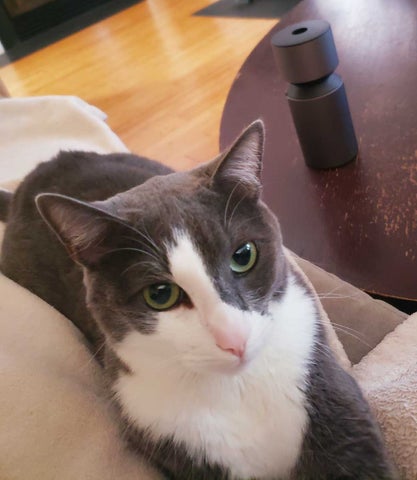
Why did you get into the care of exotic animals? Was it through specific interest, special expertise or just a lack of focused/specialized primary care for this category of animal patient in your region?
Medicine has been a part of my life since the day I was born. My father was a first-year medical student when I was born, but he never went into private practice. Rather, he remained in academia, where he was able to both practice rheumatology but also be an educator. I have so many fond memories of being his “medical helper” throughout my life and learning so much about the intricate details of medicine from him. I fell in love with medicine and with education through him. I, however, was drawn to veterinary medicine because veterinarians do not just have to pick one specific type of specialty, such as family medicine, surgery, dermatology, etc. I am able wear multiple hats every day with my patients and their amazing owners, from providing counseling before bringing a new addition into the family, to general vaccine or wellness exams to critical care and hospice needs. I am able to be a partner with my clients to help them and their pets, throughout a pet’s life entire life by being able to be involved with all of the medical care, surgical care, dental care, and many other areas of health care needs. I was drawn specifically to become more educated and experienced with exotic animals because it also allows me to wear multiple hats due to the multitude number of species, I am providing life-long care for. Knowing that I want to always offer the highest quality health care possible, means continuing to learn and grow constantly. In regards to exotic animals, there is a lack of specifically exotic animal educated veterinarians who have as much experience as I do. There is also more misinformation as to the proper care of all the different exotic species than with most other species, such as dogs and cats. This misinformation is one of the number one reasons for health issues that occur in each species, so not only do I continue to learn and grow, but I am able to share this knowledge with owners so that they can avoid health care issues as much as possible.
Which group/kind/type of exotic animals do you encounter and treat most often? Is one category more challenging or have specific considerations versus the others? For example, mammals vs birds vs reptiles and so on?
I love all of my small animal and exotic animal patients and when people refer to exotic animals, generally they are thinking about the more routine “pocket pet” species. If you are not sure what the term “pocket pet” means, think about the usual “exotic pets” that are sold in pet stores. For example, hamsters, rabbits, ferrets, guinea pigs, etc. However, I also see more unique species, such as monkeys and rare, and sometimes endangered animals. I’ve worked on Toucans, penguins, sea turtles, etc. Exotic animal care is much more challenging in general due to the lack of research and published data on each specific exotic animal, the specialized equipment needed to properly care for each type and the medication limitations dependent of the species. However, I have wonderful colleagues and mentors that I can talk to and continuing education I attend that help me to continue to grow and push myself to be the best I can be. Also, exotic animals hide illness better than any other species and that means I am usually fighting an uphill battle because, especially with prey-animals, exotic animals are hard-wired to never show any signs of weakness in the wild. Add that to that the fact they become stressed much more easily than other species (such as dogs and cats) means I have to carefully adjust my approach to each individual pet and each unique condition they are in at the time of providing care. Every single pet (and person) is an individual with their own genetic makeup and experiences, so each situation I encounter is different.
We see that you are also a doctor of holistic and alternative medicine, acupuncture, and ultrasound. How do these types of care integrate and/or complement your primary work as an animal physician? Examples?
I have studied and respect both Eastern and Western Medicine because they ultimately can complement each other. As a veterinarian, I have to address all of the needs of the pet, both physically, mentally and the environment in which they live (which is referred to as husbandry). The more tools that I have to help a pet, the better I am able to address all parts of the pet’s life and, subsequently their health. Having an ultrasound, I am able to offer ultrasound-guided procedures and imaging. Acupuncture, essential oils, energy work, healing stones/gems, massage, etc. all can work together synergistic to improve the health of a pet. Every situation, animal, and client are different, so the tools that I use to provide the necessary care are unique to each situation, and the more tools I am familiar with, the better job I can do and the better veterinarian I can be.
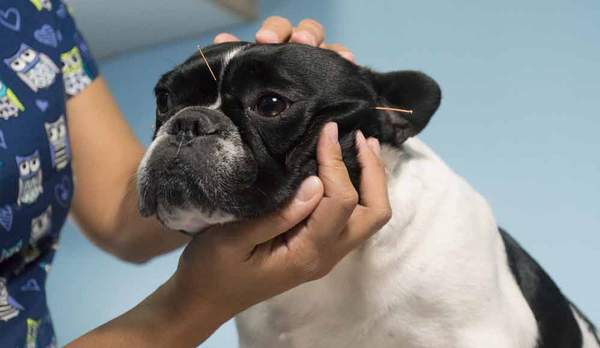
What are the most often used methods/subsets/types of alternative medicine for animal species? And how do you use them?
When approaching any case, I want to have as many options or tools to help as possible. This is achieved through being able to combine my Eastern and Western medical knowledge. I also always approach things in a “holistic” manner, which means I consider the whole animal. I see and try to address all the needs of each specific animal by factoring in the species, breed, age, mental health, behavioral issue, and the physical health. This has been even more important as I have always embraced having a “Fear Free” clinic. This means that we do everything in our power for both owners and patients to have a stress-free visit and produce more positive brain pathways associated with Elgin Veterinary Hospital.
Different essential oils allow me to use either a single one or a combination to address issues at hand, such as calming stressed out animals (especially cats), improve boarding experiences, decreasing aggression, complimenting acupuncture with both lighting and smells encountered during the experience. I even have a favorite citrus blend that helps me to focus more clearly even during the craziest of times or when I’m on hour 15 of my day and I need to keep going!
Whether it’s a dog, cat or exotic animal, other than good food, exercise and lots of personal attention what do you think is the most important thing a pet owner can do to increase the quality and well-being of their pet animals’ life?
In order for an owner to be able to provide the highest quality of life, for the longest amount of time, an owner’s journey starts well before bringing a new pet home by educating themselves on the specific needs of the pet they are considering. We offer pre-purchase/adoption consultations if you have any concerns before taking on the responsibility of ownership. We do this to ensure the specific needs of each species are understood by the owner and allow the owner to have all things necessary for their new baby!
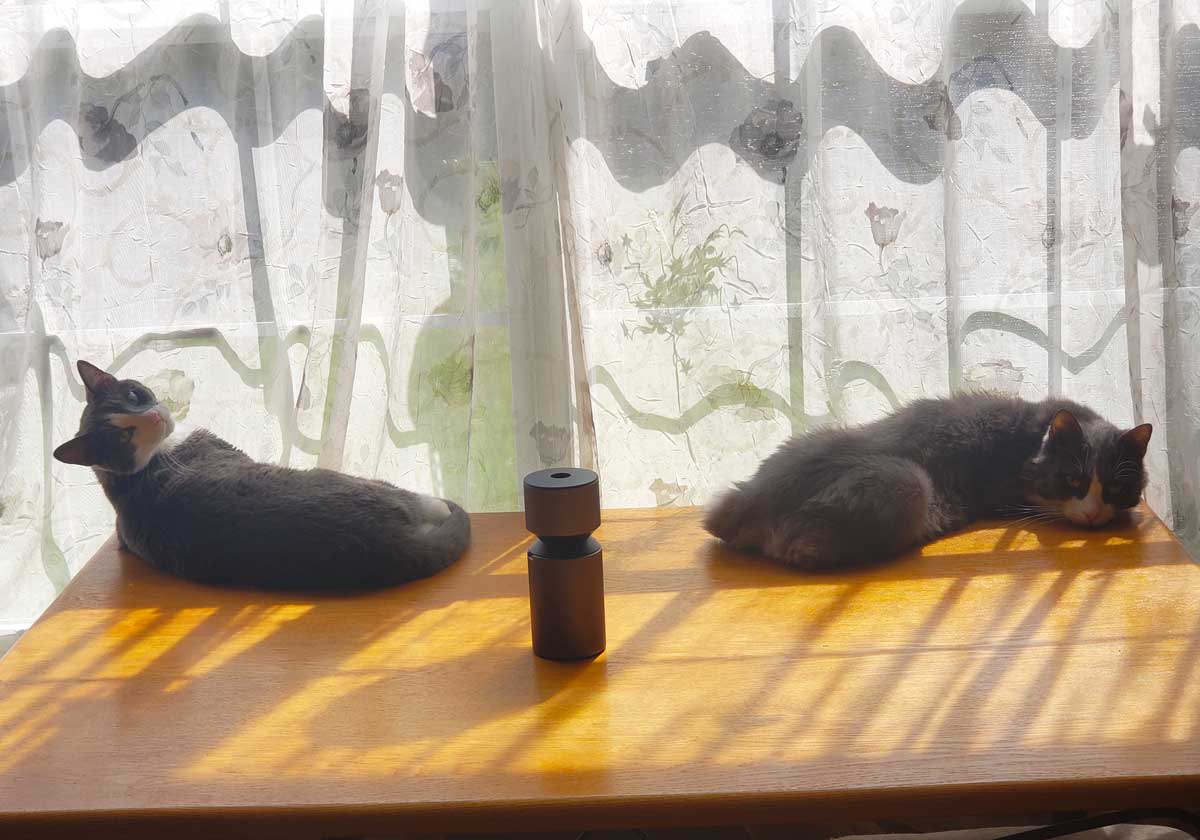
We stress education before bringing a new pet home as to the needs of each animal are different; however, you must always consider the source of your education. There is so much incorrect information on the internet and often stores are more interested in making a sale than properly educating people. This is one reason I have written so many educational handouts, papers, and publications. We also have a “Helpful Links for Pet Owners” on our website at www.elginvet.com that can help you more safely find resources.
Obviously, you want to have a physical exam with a veterinarian who is experienced and educated on your particular type of pet within 24 hours of a new addition. Never feel shy about asking about advanced training or experience level. You need to be sure that you partner with the right veterinarian and clinic that is going to meet your needs in an environment where you are comfortable. Unfortunately, many medical problems I encounter are due to a lack of correct knowledge or an animal receiving treatment that is harmful.
If you are concerned, please call for an appointment or consult right away. Be sure to see a veterinarian at least every six months. I absolutely recommend having exotic animals seen more often since they tend to hide illness and many species age much faster than a dog or cat. Also, the more often I see a patient, the better the chance of early detection of disease and a longer, healthier life. However, the most important thing is to love your babies and appreciate them every day!
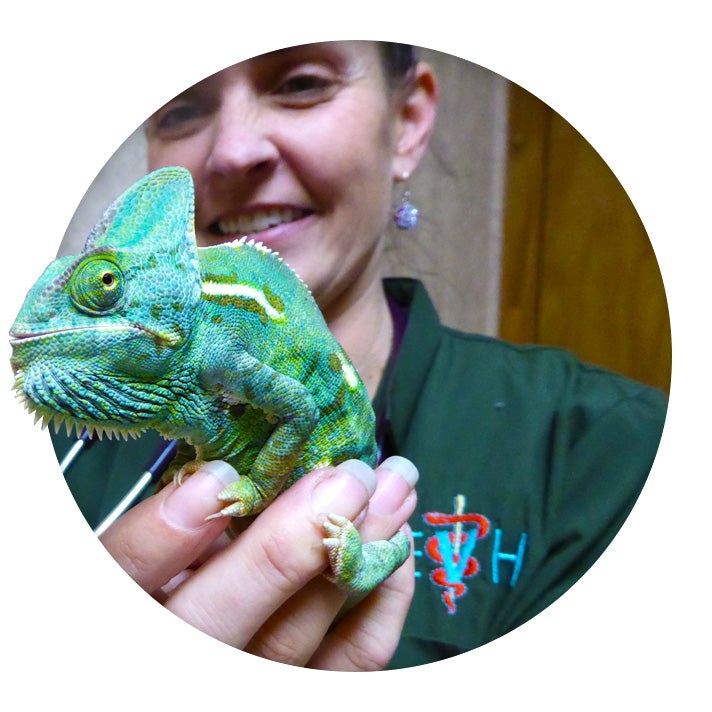
On your website you say “At Elgin Veterinary Hospital there is no sterile hospital feel, just a cozy, inviting environment where your happiness and your pet’s health are the priority to us”. What specific things can you point to that help you create this cozy, inviting environment?
At Elgin Veterinary Hospital, our motto is “Where you will always feel at home”. We take that to heart – we truly love being part of our clients and pets lives and view everyone who come to us as family. We are partners with our owners in order to give best quality of medicine and life possible. We understand that everyone is on a budget, so we work hard to provide treatment plans that work for each individual situation. The goal is to provide the best experience and best medicine and surgery possible, while surrounded by the love, understanding, and care of our Elgin Veterinary Hospital Team Members.
The clinic is also a locally owned small business, not a part of a corporation, so we can provide much more individualized care. We also decorate the hospital with local artists painting, sculptures, blown glass animal figures, and the ceiling tiles that are painted by clients! We love that our clients participate in decorating the clinic and love showing off their art!
We want to always be there for both our clients and patients in any area of life where we can help. This also includes working in the community to help with school presentations, job fairs, sponsoring local events, Red Cross blood drives, food drives, Toys for Tots, and acting as a drop-off points for different charities.
Perhaps you’re aware of the massive trend of using essential oils more and more for/on/and around pets of all kinds for and in the treatment of a wide variety of physical and mental health and well-being conditions/situations/ailments, do you ever have the need and/or opportunity to use them to treat animals and can you give us a few examples of scenarios where they could/would be necessary or useful either as a primary treatment and/or in ancillary care?
How are they used? Topically? Inhaled? Are they ever ingested? Any specific precautions?
Essential oils require a great deal of education to be used properly and there are risks, as with any medication, supplement, etc. However, the best thing to do, other than ensuring you are educated on essential oils, is to work with a company who has their oils tested for purity via a third party. This ensures that there are no other chemicals or components that could harm your baby and is why I support Organic Aromas. Most companies are not doing third-party research or testing due to cost, but Organic Aromas is dedicated to purity and the highest standards.
Essential oils can be used through diffusers, on surfaces, on towels used in boarding or during appointments, during recovery from anesthesia, and countless other ways. However, you do need to use extreme caution. While essential oils can help in many ways from decreasing stress to acting as an insect repellent to relieving arthritis, you must know all the possible risks and how to prevent them. For example, the more concentrated the essential oil the increase in risk to the pet if used incorrectly.
Passive diffusers may seem like a safer option than active diffusers, but both can carry different risks. With passive diffusers, the wick often contains chemicals to carry the oil up the wick. With active diffusers, if the setting is too high you are putting larger amounts of the essential oils into the air. Larger particles can land on surfaces and can cause serious illnesses if ingested. If the mist is too fine it can get into a pet’s lungs or the lungs and air sacs of birds. Some of these oils may be safe for your dog, but not for a cat. If small particles of the essential oil falls onto surface, including your dog’s fur, and the cat in the household licks the dog’s fur or another surface contaminated with the particles they can become very ill. You may see signs of toxicity including drooling, vomiting, ataxia (wobbliness while walking), seizures, or liver failure (more when ingested) just to name a few.
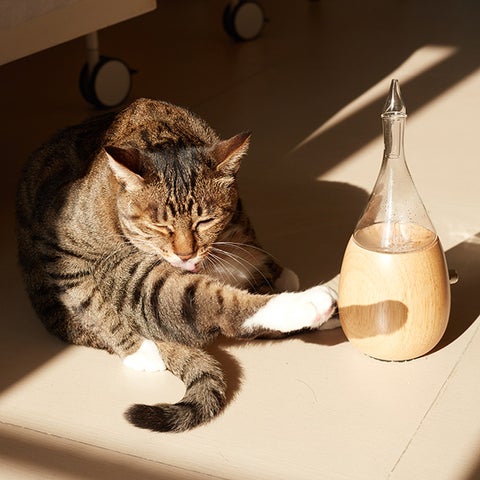
There are some essential oils that are more dangerous than others. This includes wintergreen, peppermint, tea tree, and pine oils just to name a few. You never want to use essential oils topically without diluting them to less than at least 1% in a carrier oil. This can be done via measuring by weight or done by counting the number of drops. This allows you to add a certain amount of the oil into cold pressed carrier oil, lotion, vegetable butter, or a natural lipid/moisturizer.
I never recommend using essential oils orally in any animals.
Can you give us at least one good anecdotal recount of an actual case where you had to or opted to use essential oils in any form to treat any kind of animal? And is there a good case study for their use with /for/on an exotic animal? How about a bird?
We offer boarding at our hospital and have different sections for each species, with a different air handling system for each. We do this since we board all types of animals and they all have different needs and we want to accommodate them all safely. One great example is Abby, whose parents were relocating to Columbia, but didn’t have a house lined up to move into right away. Abby boarded with us for an extended time, while her parents were working on her permanent new forever home! We were warned that Abby was not a cat who liked people or other animals and they were right. However, through the use of a blend of essential oils that I make specifically to help calm cats and within a small amount of time we were able to interact with her without fear of being attacked. The even better news is that the owner reports that the calming affect changed her permanently so she is acting better than ever at home – she even cuddles now, which she never did before!
If you could offer our readers or people at home who are interested in essential oils or other holistic and alternative treatments for their beloved pets, 3 to 5 core principles or pieces of advice. What would they be?
- When in doubt, ask your vet! Every pet has different, specific, individual needs
- Never give essential oils orally
- Never use essential oils topically without diluting properly
- Keep in mind where you are using your active diffusers and at what speed/power you have it set. This helps to know if your worry is more fine particles that can be inhaled (dangerous for birds especially) or larger particles that collect on surfaces (including fur) and should be wiped down.
- If you are at all concerned, call the Pet Poison Helpline at 1-800-213-6680 and be sure to document the case number for your veterinarian. While gathering this information, be sure your pet has access to fresh air and wash him/her down with water.
In closing, do you have any messages you think are important for those that are at home that using or thinking of using essential oils around or even for their pets? What advice can you give them?
Essential oils can be very useful in the health and happiness of a pet if used correctly. The most important step is finding a company that is actually honest and you can trust the oil is pure. Other companies may add fillers or stabilizers, etc. that can have serious, if not fatal, consequences. Once you have oil that is pure, you need to know how it is most helpful and safe to use. Educate yourself as to how to best use each of the oils, reach out to the company’s support team, etc. I use essential oils on myself and my own pets with positive results. I donate my time working closely with Organic Aromas Essential Oils because they have done their own research, have third-party research and testing, and have allowed me to use their oils to complete my own research. You can never be too careful and I am a big believer in not only having the data, but the experience of using a product before I am comfortable recommending it. As essential oils are becoming more and more common in people’s homes, it is important to me to be able to properly educate the public regarding their use. This is a company I stand behind and have used extensively with no negative results. However, there are so many companies offering these products and do not have any data to support their claims. The bottom-line is that you have to do the research with any product in your home to ensure that it is safe around your pets.
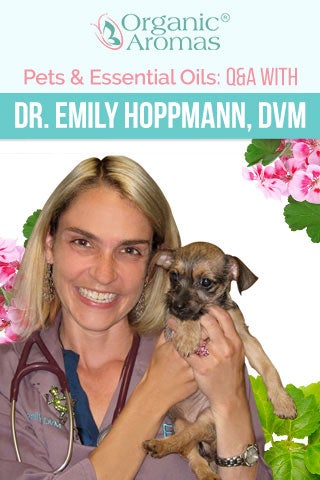

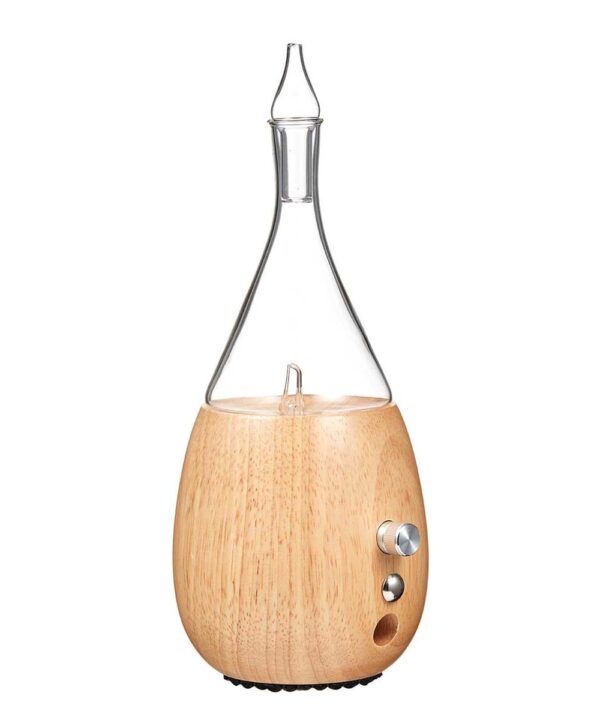
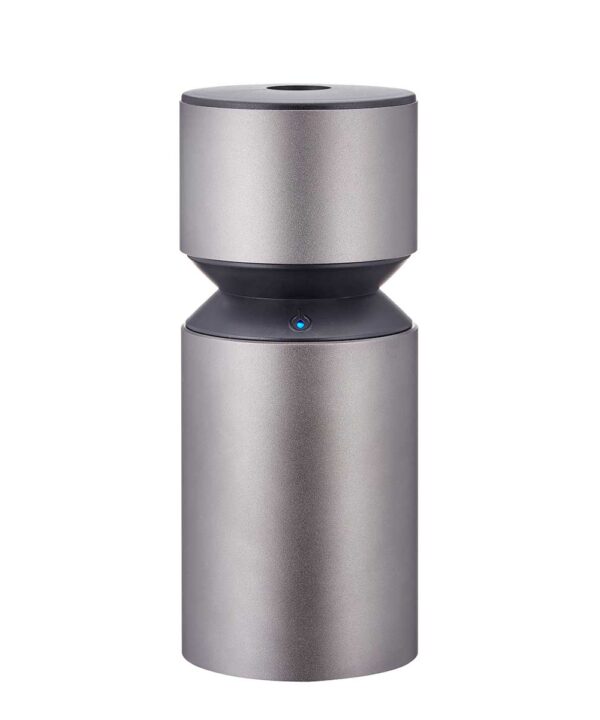
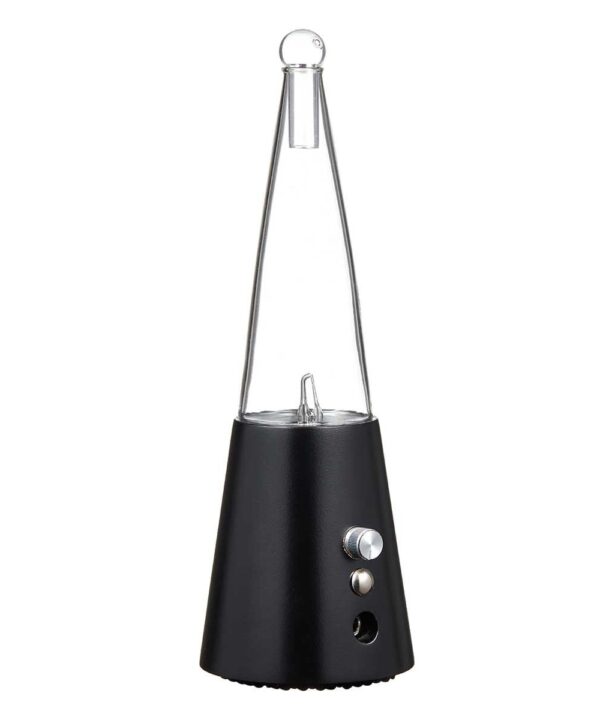
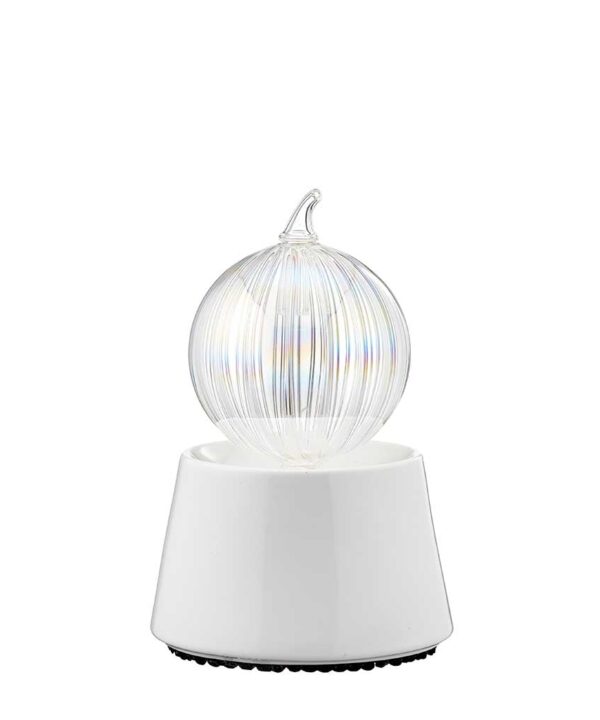
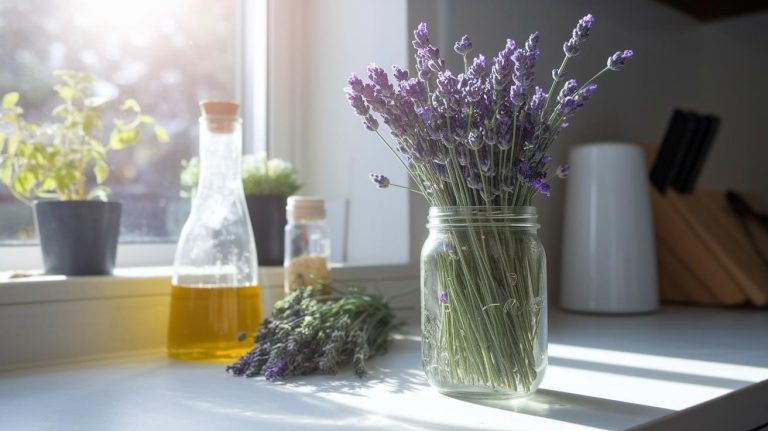
I always worry about chemicals, cleaners & even my EOs affecting my cats health. I have my most favorite cat dying of cancer laying in front of me as I type this.
this was very good info! i had no idea! will be useful for my family in the future!
Very interesting article. I learned some new information regarding pets and essential oils. Thank you.
Essential oils have made a huge difference in my dog’s anxiety!
Certain scents really do provide help (sleep, relaxation, sinus clearing)
I have a dog. I can see that he too is affected by the essential oils, such as lavender. Cool!
I use lots of different essential oils for many purposes for myself, but have always been terrified of one of them harming my furbabies. I’m also quite adept at working with flower essences. I wonder if many vets use flower essences for animals?
This is very interesting! I would never have thought to use essential oils with my pets.
Very interesting article. Definitely something to give some thought to.
I don’t have pets but this post was very interesting!
As someone who has used essential oils for years, I found a lot of information here that I did not know. I have used diffusers in my home for years and never thought that they could be a risk for my pets.
I will definitely be more aware about the settings and locations of my diffusers.
This is a great informative article. I found that whenever I where Vetiver around my sisters dog, he seems to have a calm demeanor and just lays around with me. But when I wear lemon grass he is super hyper it seems 🙂
Interesting!
I wasn’t aware how much of a positive impact these oils can have on a pets health!!
Thanks for the chance
Very useful info, we have a dog with incredible anxiety and we’ve tried it all. The more info we can gather the better.
This is helpful as we are getting a puppy next month
very informative! thanks!
Will save this for when I get a cat
I want to try this with my pet
Love businesses that are local and care about their clients!
Very interesting. Good to know the oils that you should not use.
Thanks for the information! Nice to know animals can benefit from essential oils
I like and agree with the suggestion that an owner’s education start before the purchase of an animal.
I am interested and like that has been using essential oils both personally and in her care of animals for years,
Great info already shared with friends
Thank You
So different, thank you for the information.
Very informative article. Becoming a pet owner is almost as big of a responsibility as becoming a parent. People should not take getting a pet lightly and always adopt if possible.
Good article.
my dog is 17 and stresses easy , Id love to try this for him & his little brother.
What valuable information!!
It’s always great to see info surrounding pets!
Good to know!
This sounds very interesting. Thank you for the information.
great information ty
This is a very informative article – thank you!
Wonder if that would help with our hyper buddy
I found this information concerning essential oils and pets very informative. I, myself, use the Lavender essential oil to aid in sleeping but was unaware that essential oils could be beneficial to pets. I will further look into this. Thank you!
Smile Please and thanks
Very interesting info!
I have learned a lot.
Sounds wonderful! I will be using essential oil on my cats.
interesting
I would love to win this contest
Great information. Thanks!
I would love to take care of so many different animals, its so fulfilling!
It would be really cool to deal with all these different kinds of animals.